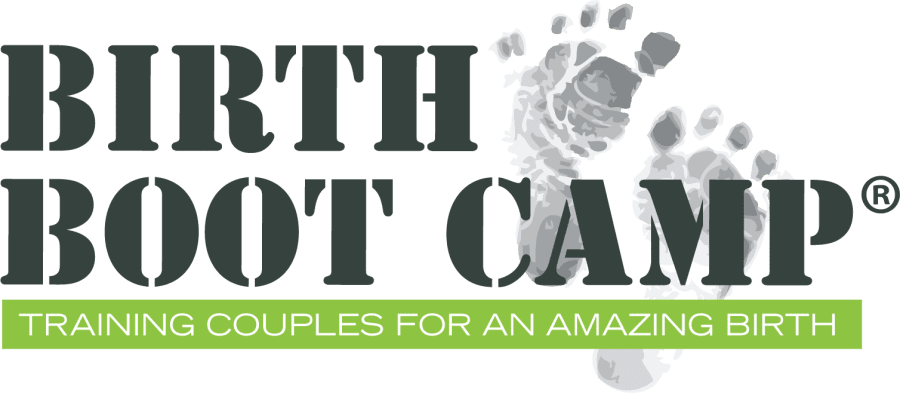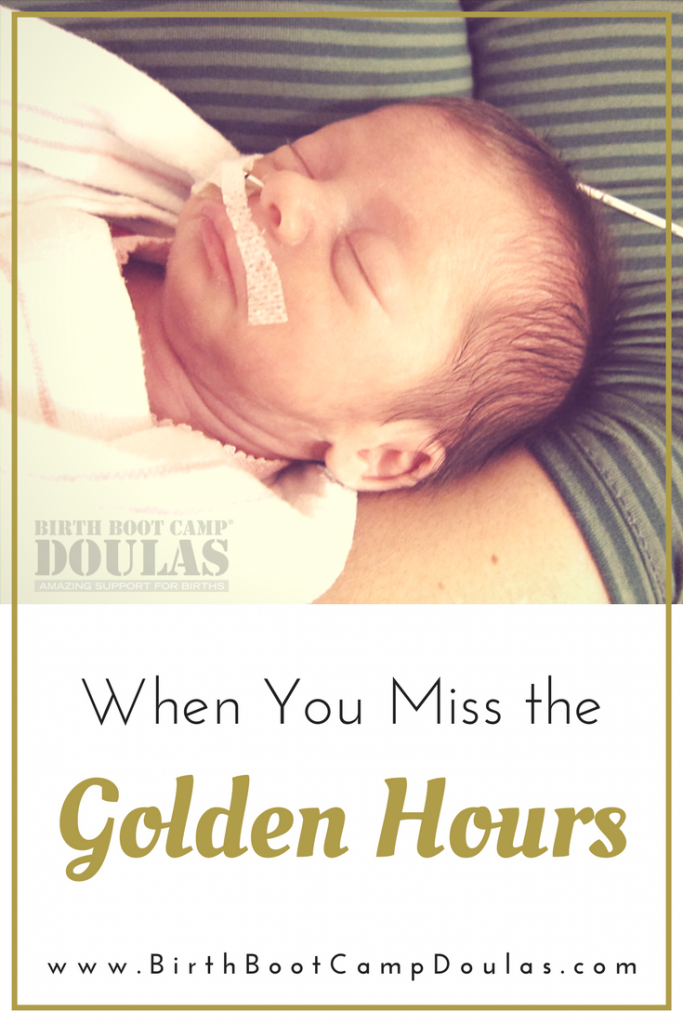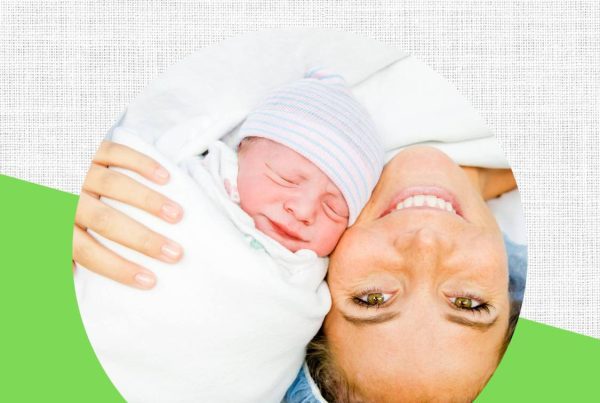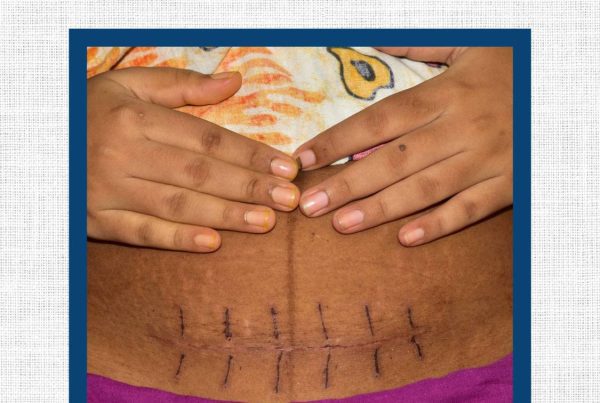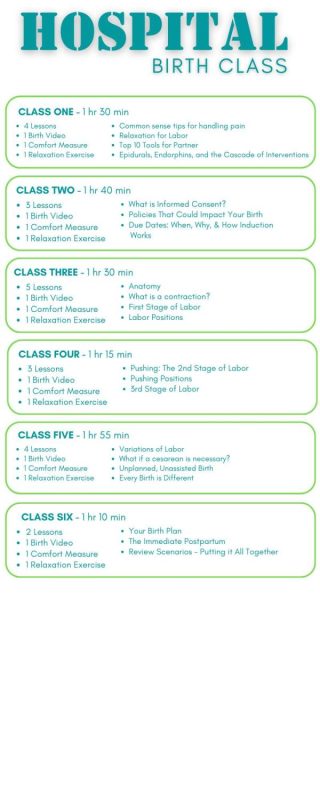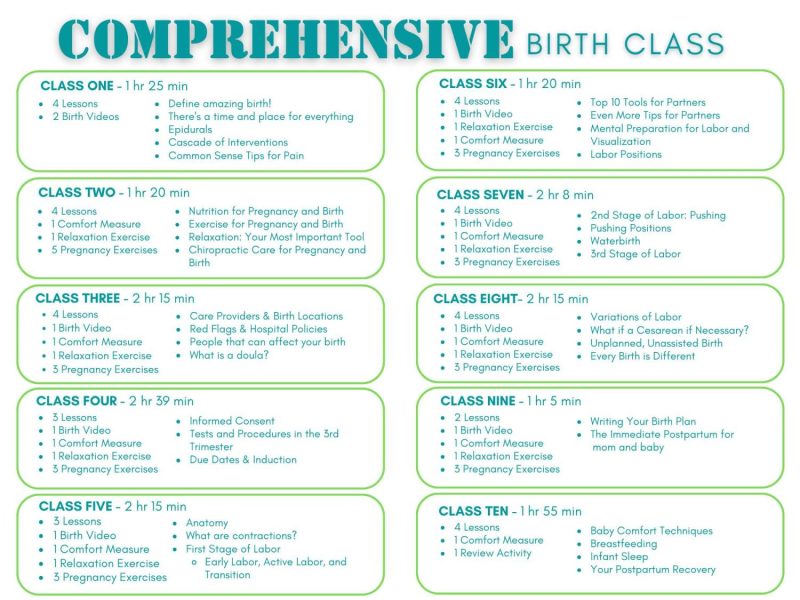When You Miss the Golden Hours
Your baby is born. You pull them to your chest. You breathe in their newborn smell, cuddle, and snuggle down for your first nursing session.
This idyllic image of meeting your baby for the first time immediately at birth is often referred to as the “golden hours.” This time truly is special and something we hope that every mother/baby duo gets to experience.
Birth, however, much like life, is not always ideal. While the moment of instant and immediate bonding is something we hope that all birthplaces respect and protect, this doesn’t always happen; sometimes out of necessity and sometimes due to outdated policy.
And while we would never want to denigrate the beauty of those “golden hours” with your baby just after birth, it’s necessary we discuss other possibilities and how you can handle them.
All is not lost
While the golden hours of immediate baby bonding are wonderful, all is not lost if they don’t occur. Many mothers had loving bonds with their children during the era of twilight sleep when babies were routinely kept away from mother for hours or even days.
Millions of adoptive parents have cherished their adopted children despite not meeting them immediately, or even for years, after their birth.
Women love their babies.
Love, for humans, does not have an expiration date.
In fact, much of the early talk of bonding was done by Kennell and Klaus, who themselves realize it lasted longer than a few hours.
“Klaus and Kennell describe the hours after birth as a “sensitive” period. Research over the past 20 years supports the idea that there is a maternal preoccupation and openness during both the last weeks of pregnancy and the few weeks after the birth of the baby. This condition of preoccupation and openness allows mother to sense her infant’s needs and respond to them in a sensitive, timely manner.”
We are not birds who push our young out of the nest if someone else has touched them. While we have similar biological impulses to be close to and protect our young, our advanced brains make it absolutely possible to choose love, build a relationship, and form healthy attachment despite early struggles and separation.
Attachment and bonding are different
Much of the desire for immediate infant contact is biological; we want to hold our babies after they are born.
Some of the concern over missing the golden hours, however, stems from writings about bonding and the importance placed on this need. Bonding and secure attachment are different things, though related.
Bonding, made known by Klaus and Kennell, talks about an, often instant, bond between mother and child made after birth when baby is held immediately. While these moments are sacred, they aren’t determinant of future success, happiness, or health of the child. Bonding, in many ways, refers to how the parent feels towards the child. There is not research to prove that this just after birth “bond” is predictive of future behavior.
Secure attachment, however, is slightly different, though the terms are used interchangeably. Secure attachment has been well researched and has been shown to have a lifelong effect on psychological health. A secure attachment is something the baby or child feels toward a primary caregiver.
This happens when the caregiver consistently responds to the baby’s needs. This is done by picking up your baby when they fuss, interacting with them, making faces, responding to their needs in a timely manner and millions of other tiny, yet significant, daily interactions.
In short, attachment is a long term relationship. It is not something that happens because of a single event, such as holding a baby immediately after the birth.
Attachment takes time. It takes consistent effort. It takes response. Secure attachment is not destroyed by missing the golden hours, even though this can be a very painful experience.
Secure attachment is a long game made up of millions of interactions, not a single moment.
When baby is separated from mom
The biological and emotional need to be close to an infant makes separation painful on many levels for the mother and baby. Here are some tips for improving the experience when there is separation.
Enlist others
Sometimes a baby must go to an NICU but mom cannot stay with them due to her own health concerns. Even in this instance, sometimes the father or partner or grandparent (it is wonderful if this person will be a continued part of the baby’s life) can accompany the baby. In fact, many parents report that the baby will recognize the voice of a dad after birth and be calmed by him, especially if he has been active, present, and talking to the baby during pregnancy.
Whomever attends the baby can offer comfort, reassurance, love, and can take mental notes of what happens and report back to mom. If allowed or appropriate, many mothers appreciate photographs or videos of these early moments so they have them to treasure or look at until they can physically be near their baby.
Voice your concerns
The partner isn’t the only person who can help. Many times, medical staff will make huge efforts to facilitate as needed. Ask your nurse or even a doula if they can take pictures and tell you how things are going. They will very often try to help if they can.
Pump or hand express
One reason we like to see baby and mother together right after birth is to initiate the breastfeeding relationship. There is great value in the act of immediate breastfeeding and in the nutrition gained from colostrum, the first milk that is produced.
If you can’t be with your baby, it’s important to still do what you can to help ensure milk production. Getting a good quality pump and/or employing hand expression is proven to be helpful.
This video on hand expression is good to watch. Sometimes there is a delay in getting a good quality pump to mom, or some women simply find more success with hand expression. Helping facilitate the beginning of breastfeeding, even if you can’t be with baby, can pay dividends in future milk production.
Here are some more tips for pumping success.
What mothers say
If you must miss time with your baby just after birth, you are not the only one. Many women have experienced this and they offer wisdom, hope, and comfort.
Here are some thoughts from other moms who have walked this road.
“I missed the first 24 hours because we had swine flu so they wouldn’t let us see our daughter. It was so hard. But I pumped right away and kept pumping so that she could get colostrum and to help my milk come in.
The nurses took my camera and took pictures of her so we could see her. Once we were able to see her I tried to cherish those moments. I nursed her right away to help start that bond. It was so hard not seeing her right away. But I cherished the time once we did see her.
Andrea Brannock, Adore Birth Services
~
“One of my twins was in the NICU for two nights. When she was born (Baby B), she stayed on my chest for a few minutes and then went to my husband’s chest. He went with her when they took her to the NICU after she was weighed and under 5 lbs.
He stayed with her doing skin to skin while I rested and nursed Baby A. I made my way to her 2 hours later, but due to blood loss, I had to return to bed.
Once I was walking again, we started with skin to skin and attempted to nurse. I started pumping within three hours of the births so she could have my colostrum and her dad fed her. We fought to be not discharged before B to make it easier to be together.
Once home, we spent a lot of the time skin to skin. She slept on me. We had trouble nursing but continued to work at it. Her dad has very special memories with her and our bond is great now.”
Laurie McGowan, Adventures of Little, Canada
~
“If there is something you can have someone lay in the bassinet with them it’s great to hold/smell when you’re sleeping or pumping. It was so helpful to ‘recognize’ his smell when I finally got to hold him and touch him.”
Just the beginning
Pregnancy, birth, and the first moments postpartum are truly just the beginning of the job that lasts a lifetime: parenting. Pregnancy matters. Birth matters. Yes, those first moments with baby matter. The reason they matter however, is because they lay the groundwork for something much greater and long-lasting; the parent/child relationship.
There are millions of moments that that will make up your years as a parent and not all of them will go as we wish. This too is part of the journey, the pain, and the joy of raising children. Never fear, despite early separation, you can and will, form a strong bond with your sweet little one.
~
References:
Infant Parent Attachment
https://www.ncbi.nlm.nih.gov/pmc/articles/PMC2724160/
Behavioral Outcomes with Insecure Attachment
https://www.ncbi.nlm.nih.gov/pubmed/25000392
Science and Maternal-Infant Bond
https://www.ncbi.nlm.nih.gov/pmc/articles/PMC3838467/
Maternal Infant Attachment
https://www.ncbi.nlm.nih.gov/pmc/articles/PMC3431792/
